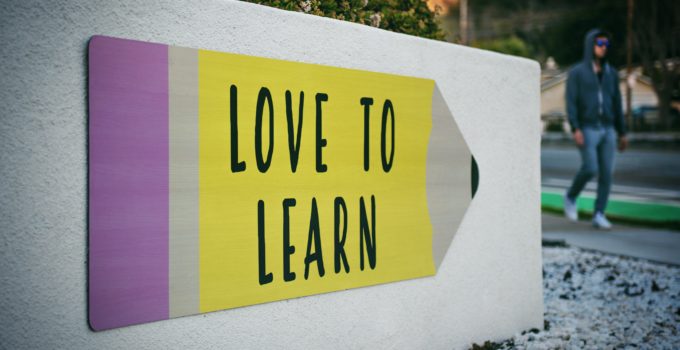MYTH ALERT: YOU AREN’T BORN WITH A FINITE NUMBER OF BRAIN CELLS!
(I was trying to figure out how to fit that in the title or beginning of this post, but it didn’t work with my narrative style, so I had to get it off my chest before I wrote the rest of the post. I’ll explain more later.)
Have you ever learned something and thought, “Man, I wish I had learned that ten years ago! So many things would have been easier for me if I’d known that!”
Yeah…my adult life to date has been full of those moments.
Recently, I found myself in a flood of such moments, taking the Learning How to Learn course on Coursera.
Learning How to Learn Coursera
I’d been meaning to take this course for a while. I don’t remember how I found it in the first place, but it was probably when I got distracted taking a Coursera course for my Data Science specialization. Since I have a decent amount of free time on my hands right now, I decided to dive in.
Ooh, you guys. It’s such a lovely blend of brain science and actionable tactics for making the most out of learning…well, anything, really. It’s quick – I probably spent a total of 4-5 hours watching videos and completing the quizzes. But I think the most compelling thing about it is that it’s EXCITING.
I wanted to tell people about what I was learning.
I wanted to try out what I was learning.
But most of all…I wish I had taken this course when I was 13.
I would have known how to approach AP courses in high school. I would have had some techniques under my belt to fight the inevitable procrastination that pops up when I had to start a project. And I would have understood how to approach college learning.
Ah, well. The best day to plant a tree is 20 years ago. The second-best day? Today.
The course covers a wide variety of topics, including procrastination tips, instructions for how to build a mind palace, and the best way to prepare for a test. But there were three things that really stuck with me and are why I’m urging you – student or not – to take a few hours away from Netflix and check out this course.
Your Brain Produces New Neurons
This is what I was talking about at the beginning of the post. I’ve always heard that you’re born with a set number of brain cells and they die off, but never repopulate. So don’t drink, kids, it’ll kill your brain cells!
Yeah, turns out that’s a load of hooey. While it is true that we become less mentally agile as we get older and that drinking alcohol to excess isn’t healthy, the hippocampus continues to produce new neurons daily, which allows us the opportunity to continue learning every day of our lives.
The idea that, after the age of 12, people aren’t able to learn languages fluently? Yeah, also a myth, but that’s a rant for a different post. OUR BRAINS ARE CAPABLE OF A LOT! DON’T UNDERESTIMATE YOURSELF!
Focused vs. Diffuse Mode
Short version: Daydreaming helps you cement things in your brain and make new (often unexpected) connections among what you’ve already learned.
Longer version: Your brain has two modes: focused and diffuse. Focused is what you use when you’re actively paying attention to a specific task and is probably what you think of when you think of learning.
But your brain continues to mull things over and make connections after you’ve stopped paying attention to things. This is the diffuse mode, and it’s when unexpected and often revelatory thoughts can happen. Meditation, long walks, and that split moment before falling asleep are all times when the brain might be in the diffuse mode. (This is where shower thoughts come from!)
Process vs. Product
Now THIS is the part that I think about most often. They do a whole module on motivation and procrastination, and this nugget was a massive lightbulb moment.
You will be more productive in a study session if you focus on the process and not the product. If, instead of, “I’m going to finish my math homework,” you think, “I’m going to work on math for 25 minutes,” you will probably get more done, and with less mental pain.
See, procrastination comes from the anticipated discomfort associated with a task. If you’re focused on spending the time working on a general group of tasks (math studying) instead of a specific product (completed math problems), you’re less likely to procrastinate.
I’ve actively engaged in this concept in my day to day life with housework. I have a list of chores that I want to complete on a weekly basis, but I kept putting off actually DOING them. When I shifted from, “I should clean the bathroom today,” to “I’m going to clean for 25 minutes today,” all of a sudden, the bathroom was clean!
This is only a small chunk of the stuff that I learned from this course. It’s free (unless you want to pay for a completion certificate) and doesn’t technically have any deadlines (if you miss a deadline, you can reset them whenever you want), so it would be easy to squeeze into your day-to-day life.
If you check it out, let me know. I would love someone to babble excitedly with about the possibilities our brains give us!





No Responses